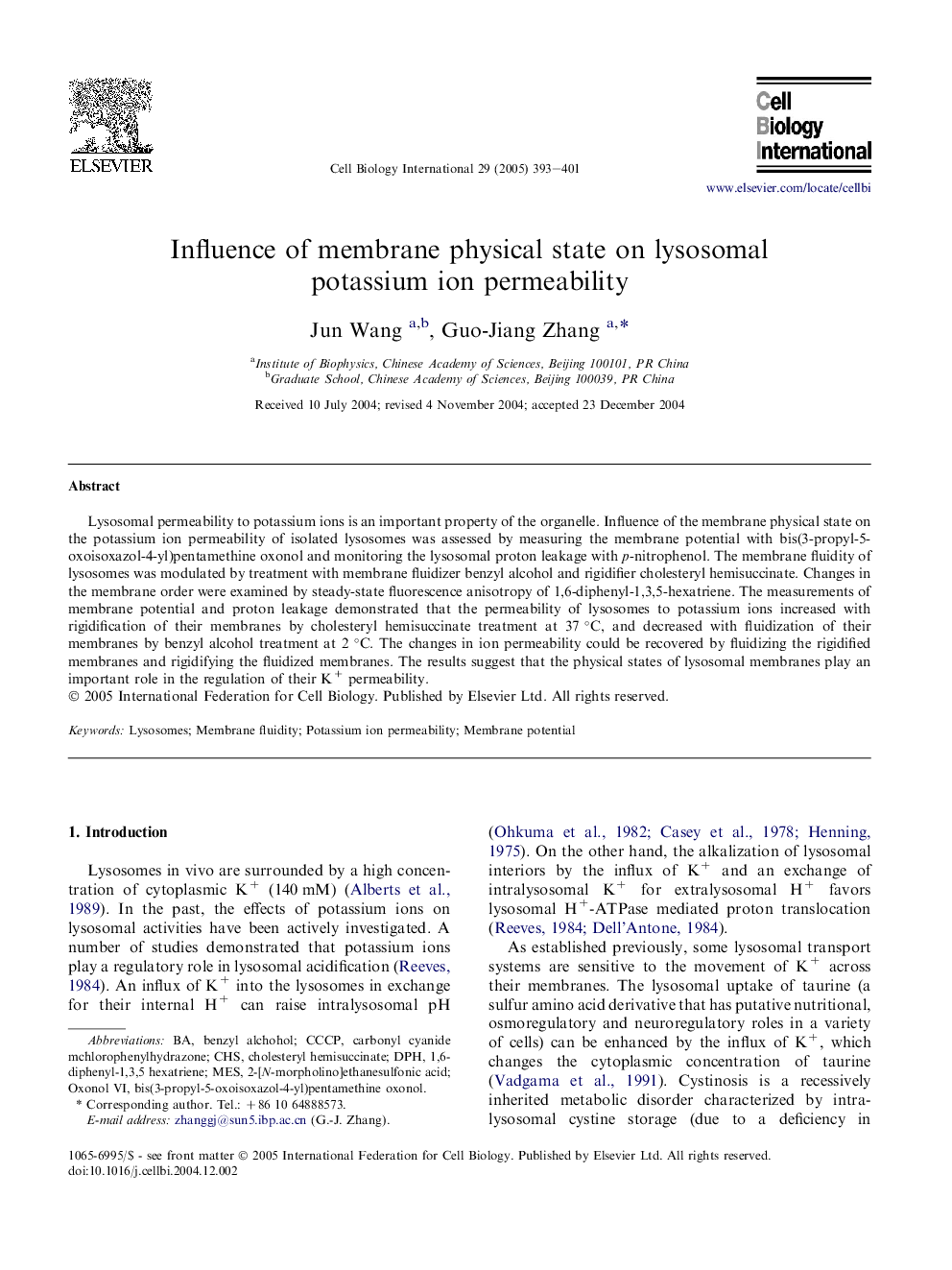| Article ID | Journal | Published Year | Pages | File Type |
|---|---|---|---|---|
| 10881857 | Cell Biology International | 2005 | 9 Pages |
Abstract
Lysosomal permeability to potassium ions is an important property of the organelle. Influence of the membrane physical state on the potassium ion permeability of isolated lysosomes was assessed by measuring the membrane potential with bis(3-propyl-5-oxoisoxazol-4-yl)pentamethine oxonol and monitoring the lysosomal proton leakage with p-nitrophenol. The membrane fluidity of lysosomes was modulated by treatment with membrane fluidizer benzyl alcohol and rigidifier cholesteryl hemisuccinate. Changes in the membrane order were examined by steady-state fluorescence anisotropy of 1,6-diphenyl-1,3,5-hexatriene. The measurements of membrane potential and proton leakage demonstrated that the permeability of lysosomes to potassium ions increased with rigidification of their membranes by cholesteryl hemisuccinate treatment at 37 °C, and decreased with fluidization of their membranes by benzyl alcohol treatment at 2 °C. The changes in ion permeability could be recovered by fluidizing the rigidified membranes and rigidifying the fluidized membranes. The results suggest that the physical states of lysosomal membranes play an important role in the regulation of their K+ permeability.
Keywords
Related Topics
Life Sciences
Biochemistry, Genetics and Molecular Biology
Biophysics
Authors
Jun Wang, Guo-Jiang Zhang,
